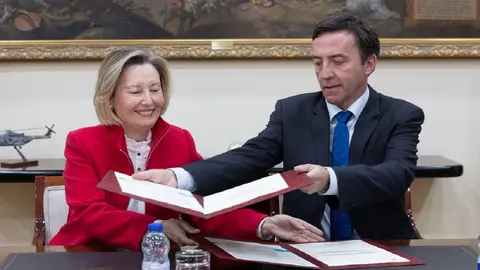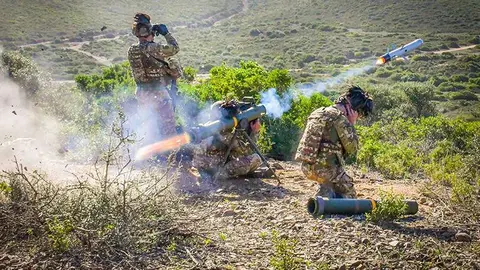A handful of votes puts Spanish-Israeli defence cooperation at risk
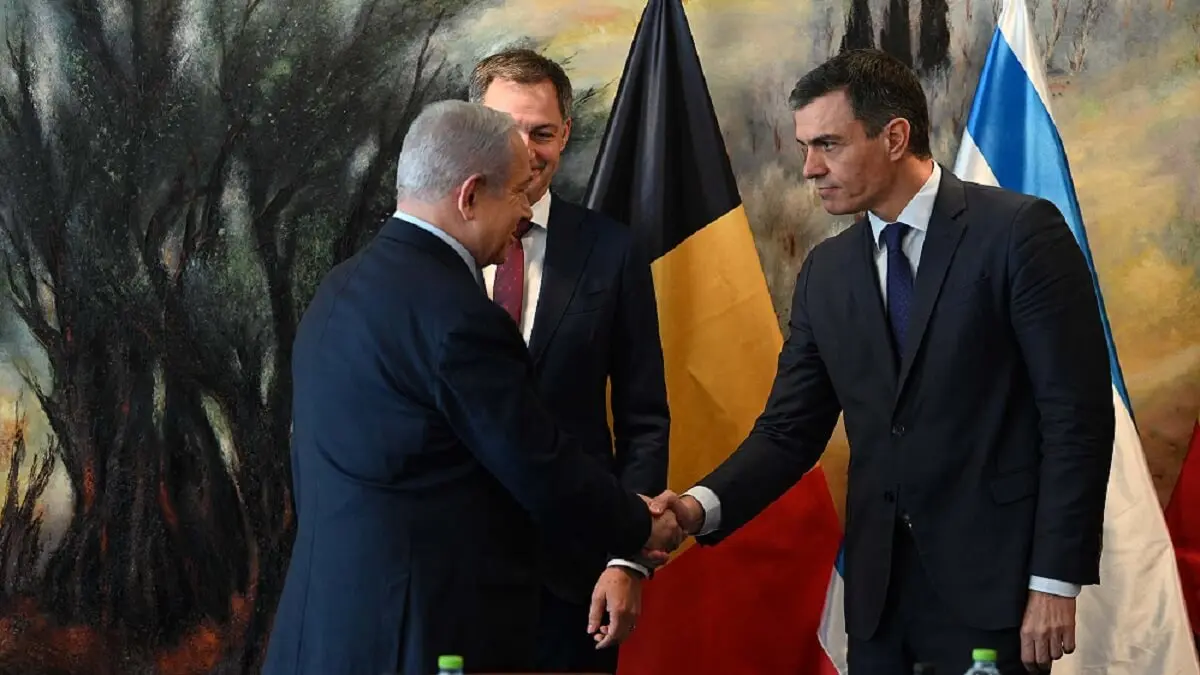
Surprisingly, out of the blue and out of the blue, Defence Minister Margarita Robles has added fuel to the fire in the already tense relations between Israel and Spain.
She did so just minutes before the start of the Armed Forces Day military parade in Oviedo, the capital of the Principality of Asturias. On Saturday, 26 May, in response to a journalist from Televisión Española, who asked her on camera for her opinion on "the current main threat to Spain", the minister replied that Spain "is always very supportive of what is happening in the world", that there is a "tremendous" war in Ukraine and that what is happening in Gaza "is a real genocide".
Although Prime Minister Benjamin Netanyahu's first diplomatic reaction to President Sánchez's announcement to recognise the Palestinian state was to recall his ambassador, the biochemist and diplomat Rodica Radian-Gordon, Robles says she is "sure" that the CNI and Israel's intelligence services "will continue to work on anti-terrorist matters". And that Netanyahu will not retaliate against the projects for the sale of weapons systems and electronic material for defence that he has committed to with Spain.
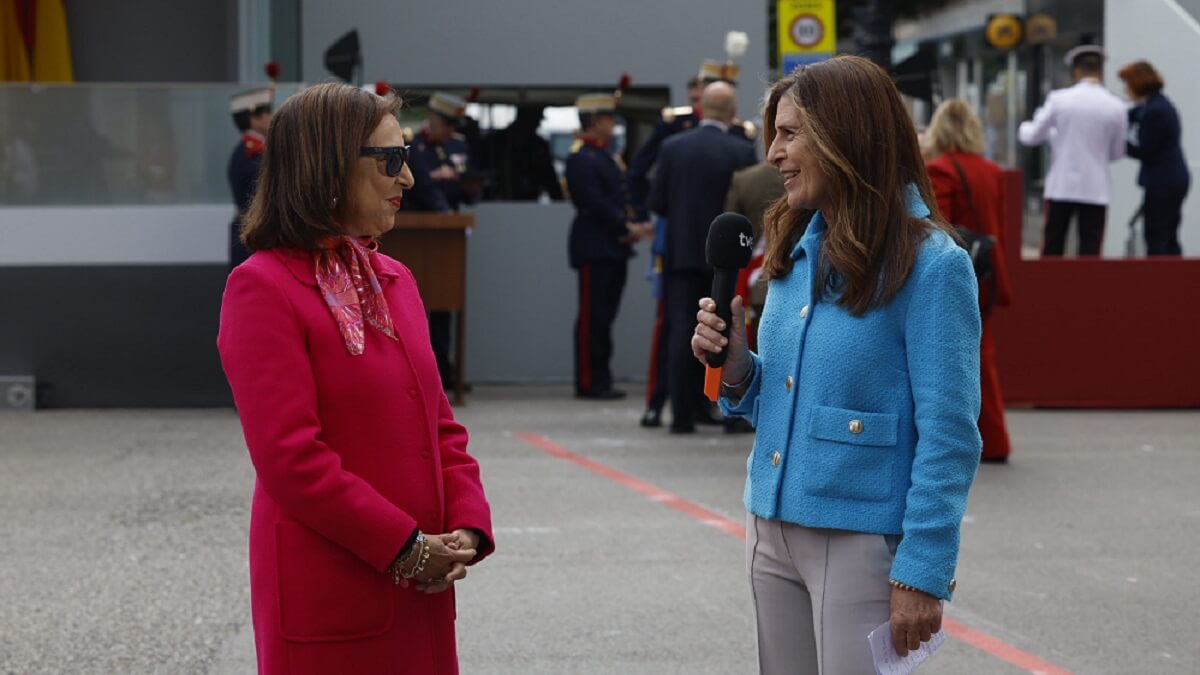
However, it seems illusory to rule out that the Jerusalem government has not prepared a battery of commercial, economic and financial measures to retaliate against Sánchez's decision. And it is quite possible that this package will include retaliation by the Israeli defence minister, Yoav Gallant, on the security and defence cooperation programmes that Israel has agreed with Robles' ministry and Grande-Marlaska's interior ministry.
The intelligence information that Margarita Robles is supposed to have received from Esperanza Casteleiro, her former director of Cabinet, later Secretary of State for Defence and now director of the CNI, does not coincide with the criteria that some Spanish intelligence directors express. Nor does it agree with the data that the senior officials of the national defence industry receive from their sources in Tel Aviv and Jerusalem.
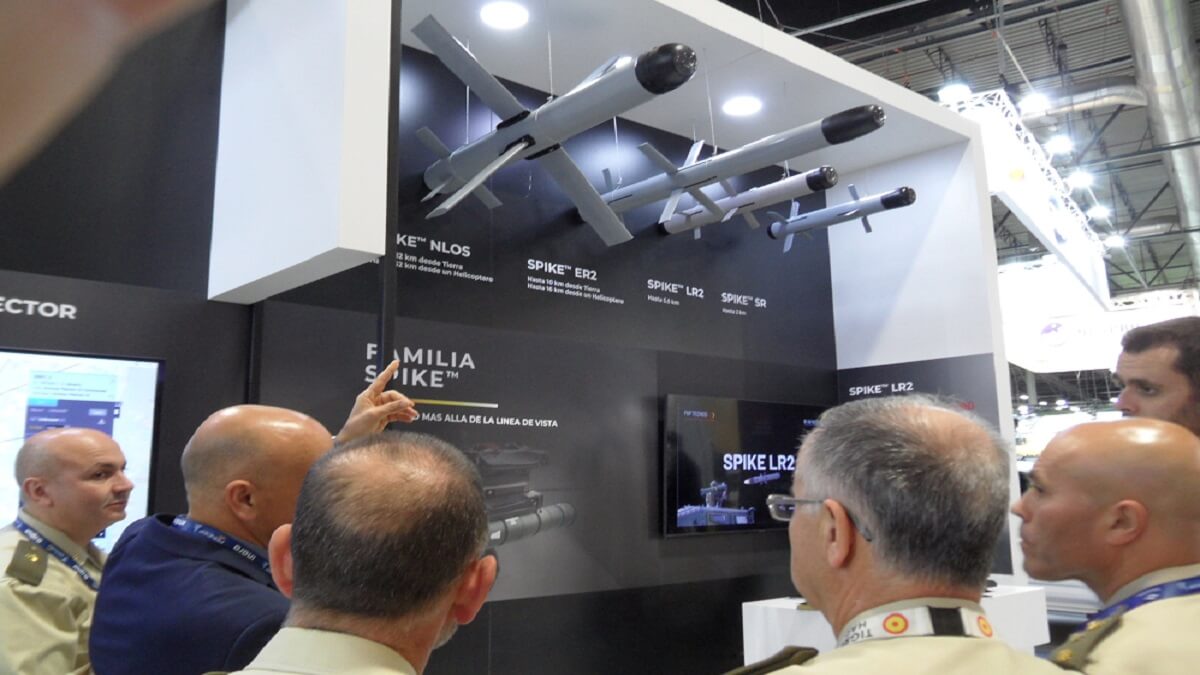
The army's future firepower
Senior military commanders confirm that, "for the moment, no rupture has materialised", but the industry stresses that it is "expectant about what might happen". In Defence, companies and industry associations agree that they are "concerned that agreements may be denounced, contracts already signed may be broken, commitments that are in the process of negotiation may be set aside... and that we may find ourselves in a big mess".
The general opinion is that it is no coincidence that the crisis is taking place at the start of the general election campaign for the European Parliament. In these elections, the parties on the left of the Spanish and European political spectrum are fighting a tough battle with those on the right. The PSOE has identified the discouragement of the voters of the Sumar candidates sponsored by the vice-president Yolanda Díaz and hopes to catch votes in troubled waters. "This is the main reason for the official recognition of Palestine, regardless of the views of the leaders of Germany, France, Italy and the UK," they say.
Israel's defence industry is a major manufacturer and exporter of armaments and associated equipment, mainly land and airborne. It ranges from assault rifles to missiles of all kinds and is a pioneer in the development of observation, electronic warfare and attack drones. As part of its strategy to diversify its arms purchases, the Ministry of Defence has signed important government-to-government agreements with its Israeli counterpart, in which the main beneficiaries are Elbit and Rafael, the two companies that lead its military industry.
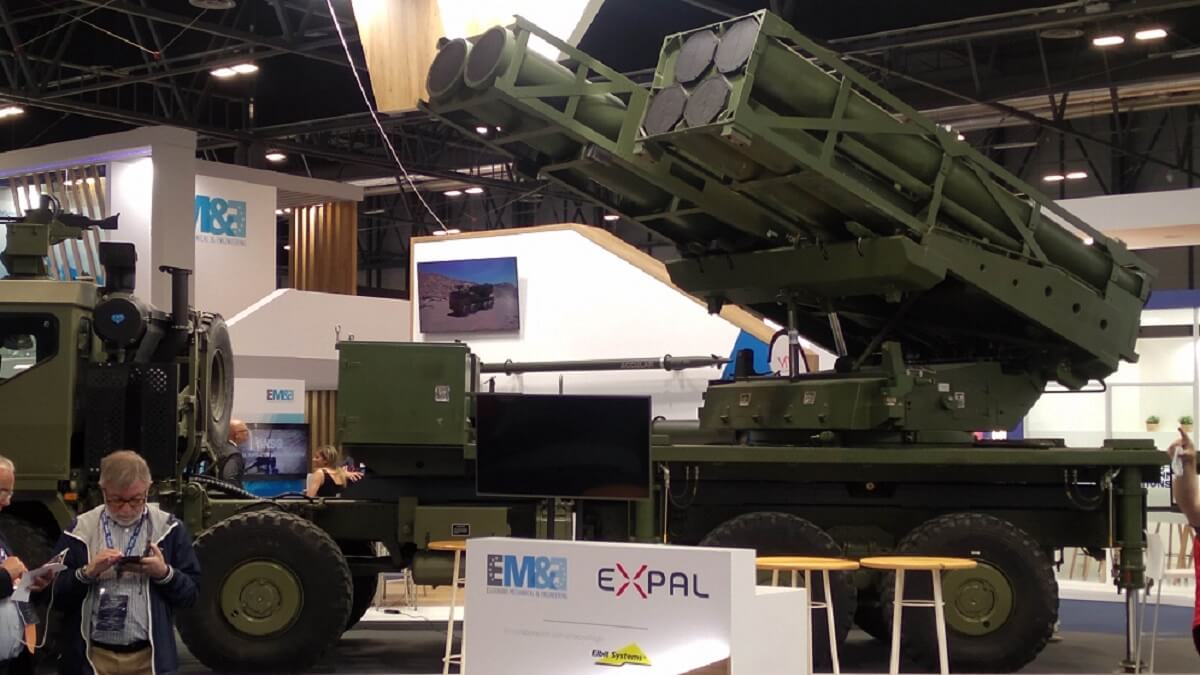
Three Spanish-Israeli cooperation programmes are priorities for the army and air force. The most important one, with the largest economic volume and involving a high degree of technology transfer, is aimed at making the High Mobility Rocket Launcher System, SILAM, a reality. The aim is to revive rocket launcher artillery in Spain, which became obsolete at the end of 2011, when the last Teruel launchers were withdrawn from service. Since then, the army has had no medium- and long-range high firepower saturation systems.
The SILAM is based on the Puls, a model rocket launcher developed by the leading Israeli company Elbit. Puls launchers and their derivatives offer a wide flexibility to fire different types and calibres of rockets - from 122 to 370 millimetres - with a range of 40 to just over 300 kilometres. They are in service with Azerbaijan, Denmark, Kazakhstan, Rwanda and, of course, the Israel Defence Forces. They have also been acquired by the Netherlands and Thailand.
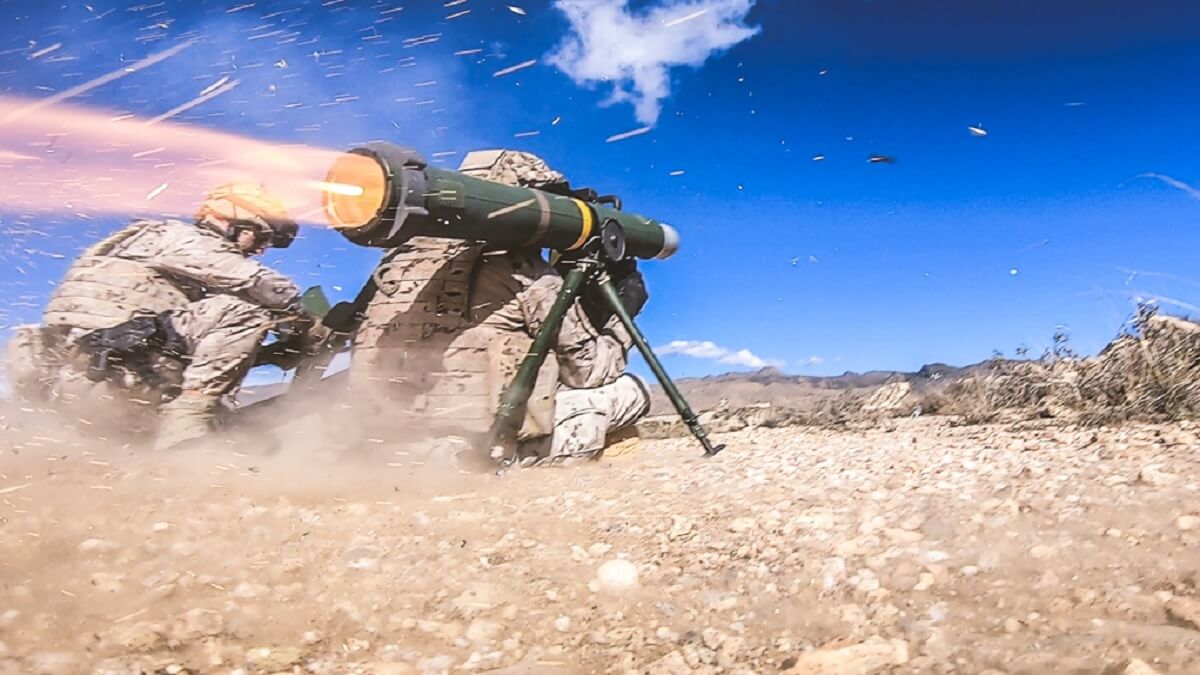
Missiles for the army and sensors for the air force
The various contracts signed by the end of 2023 amount to 697.5 million euros. Their main Spanish beneficiary is the joint venture formed by the Spanish companies Escribano M&E and Rheinmetall Expal Munitions, which are committed to the production and delivery of 680 rockets, a dozen launch vehicles, a dozen vehicles for munitions, vehicles for command posts, exploration and recovery, mostly produced by Iveco in Madrid. Also target acquisition radars, drones and fire control and guidance systems.
Another key programme is long-range man-portable anti-tank missiles. In the war in Ukraine, they have been revalued as an essential defence skeleton to disrupt and destroy tank incursions and infantry vehicle attacks.
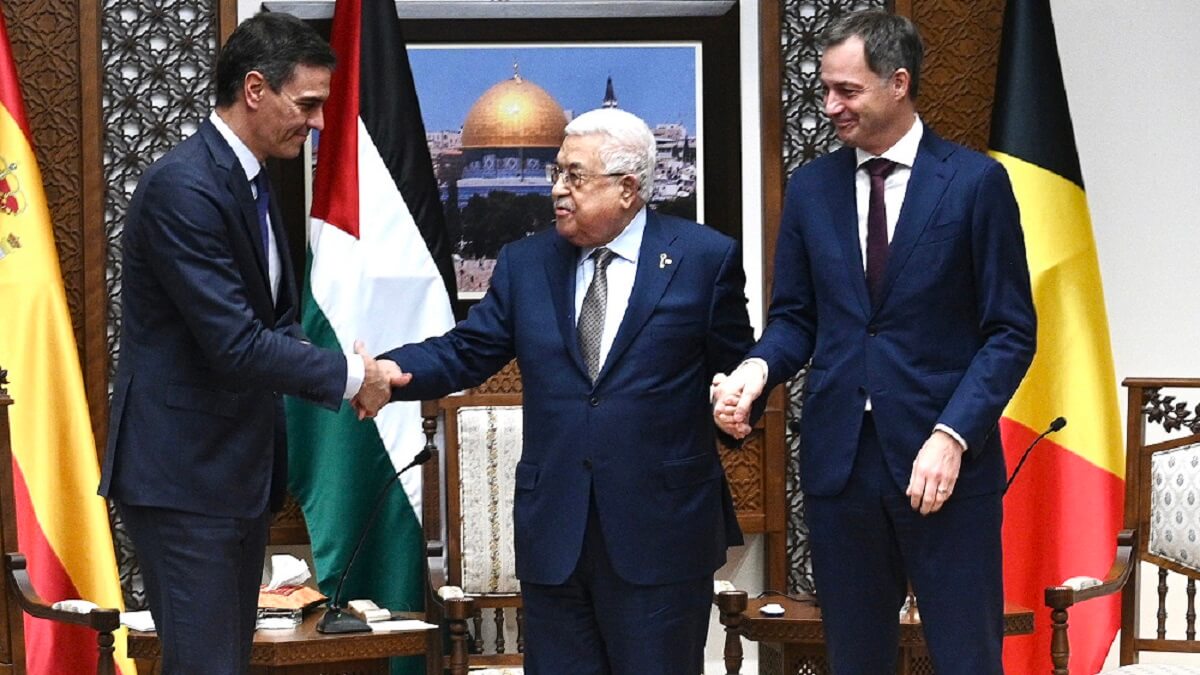
Defence has signed a contract to procure 168 firing positions and 1,680 fifth-generation Spike LR2 fifth-generation "fire-and-forget" anti-tank missiles with a maximum range of 5.5 kilometres. Developed by Rafael, it incorporates an advanced tracker and target designator and an explosive payload with high armour penetration capability.
The contract could be closed once Pap Tecnos, Rafael's Spanish subsidiary based in Torrejón de Ardoz (Madrid), assumed the role of prime contractor and assigned workloads valued at more than 90 million euros to several Spanish companies: the guidance and launch equipment to Escribano and Tecnobit; the rocket engines to Rheinmetall Expal Munitions which, together with the Granada Munitions Factory, is also responsible for the warheads and the missile's explosive.
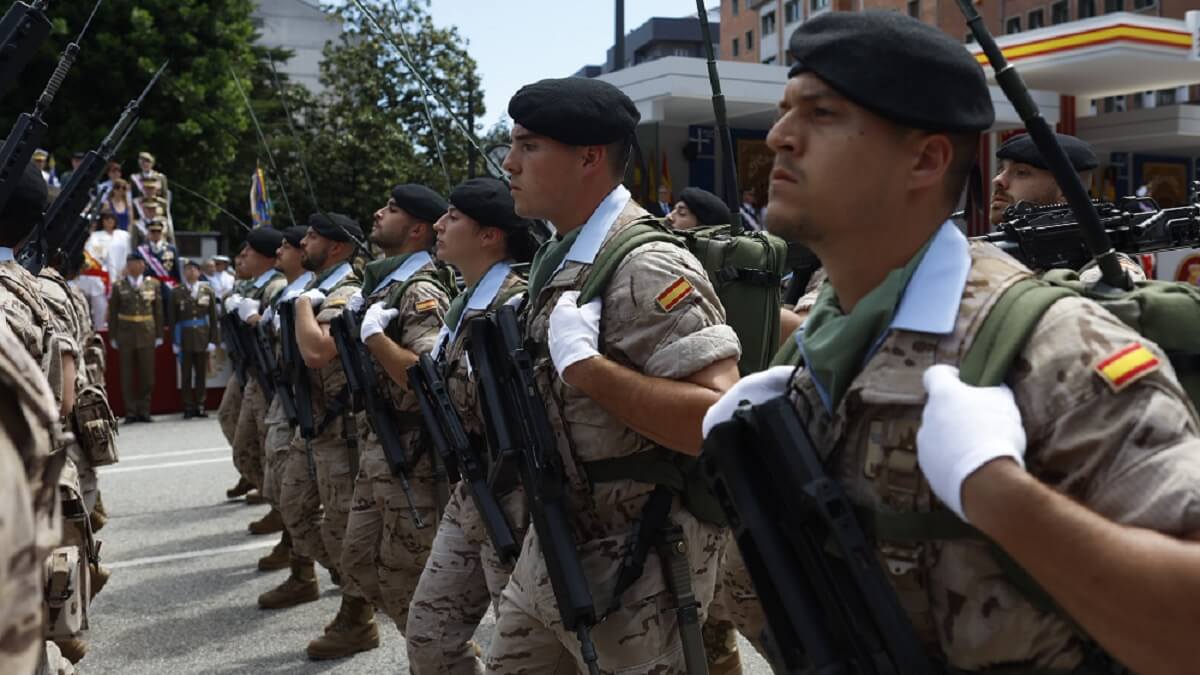
Defence is also committed to a contract with Rafael worth 207.4 million. It is for 46 Litening V all-weather laser illuminators, which enhance the air-to-surface detection and attack capabilities with laser or GPS-guided munitions of the 45 new Eurofighter fighters of the Hawk I (20 aircraft) and Hawk II (25) programmes. Indra has agreed with Rafael to maintain these sensors.
Other relevant but smaller contracts have been signed with Plasan, a Jewish company that provides the armour and protection system for the army's first 348 8x8 Dragon Wheeled Combat Vehicles (RCCVs). In the area of tactical communications, the Army is equipping itself with more than 900 software-defined encrypted radios from Elbit's E-LynX family, which has a contract with Telefonica and Aicox for their manufacture and support in Spain.


